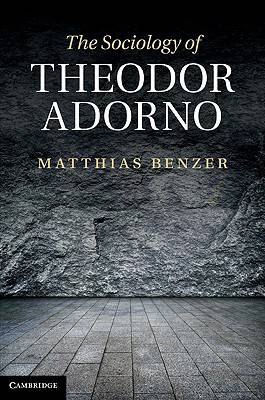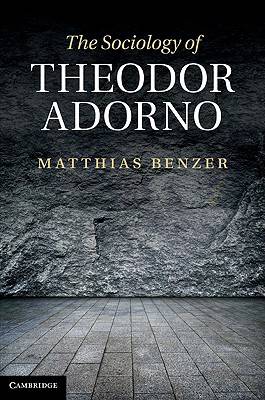
- Afhalen na 1 uur in een winkel met voorraad
- Gratis thuislevering in België vanaf € 30
- Ruim aanbod met 7 miljoen producten
- Afhalen na 1 uur in een winkel met voorraad
- Gratis thuislevering in België vanaf € 30
- Ruim aanbod met 7 miljoen producten
Zoeken
Omschrijving
Theodor Adorno is a widely-studied figure, but most often with regard to his work on cultural theory, philosophy and aesthetics. The Sociology of Theodor Adorno provides the first thorough English-language account of Adorno's sociological thinking. Matthias Benzer reads Adorno's sociology through six major themes: the problem of conceptualising capitalist society; empirical research; theoretical analysis; social critique; the sociological text; and the question of the non-social. Benzer explains the methodological and theoretical ideas informing Adorno's reflections on sociology and illustrates Adorno's approach to examining social life, including astrology, sexual taboos and racial prejudice. Benzer clarifies Adorno's sociology in relation to his work in other disciplines and the inspiration his sociology took from social thinkers such as Marx, Weber, Durkheim, Kracauer and Benjamin. The book raises critical questions about the viability of Adorno's sociological mode of procedure and its potential contributions and challenges to current debates in social science.
Specificaties
Betrokkenen
- Auteur(s):
- Uitgeverij:
Inhoud
- Aantal bladzijden:
- 278
- Taal:
- Engels
Eigenschappen
- Productcode (EAN):
- 9781107000094
- Verschijningsdatum:
- 10/03/2011
- Uitvoering:
- Hardcover
- Formaat:
- Genaaid
- Afmetingen:
- 157 mm x 234 mm
- Gewicht:
- 589 g

Alleen bij Standaard Boekhandel
+ 201 punten op je klantenkaart van Standaard Boekhandel
Beoordelingen
We publiceren alleen reviews die voldoen aan de voorwaarden voor reviews. Bekijk onze voorwaarden voor reviews.








